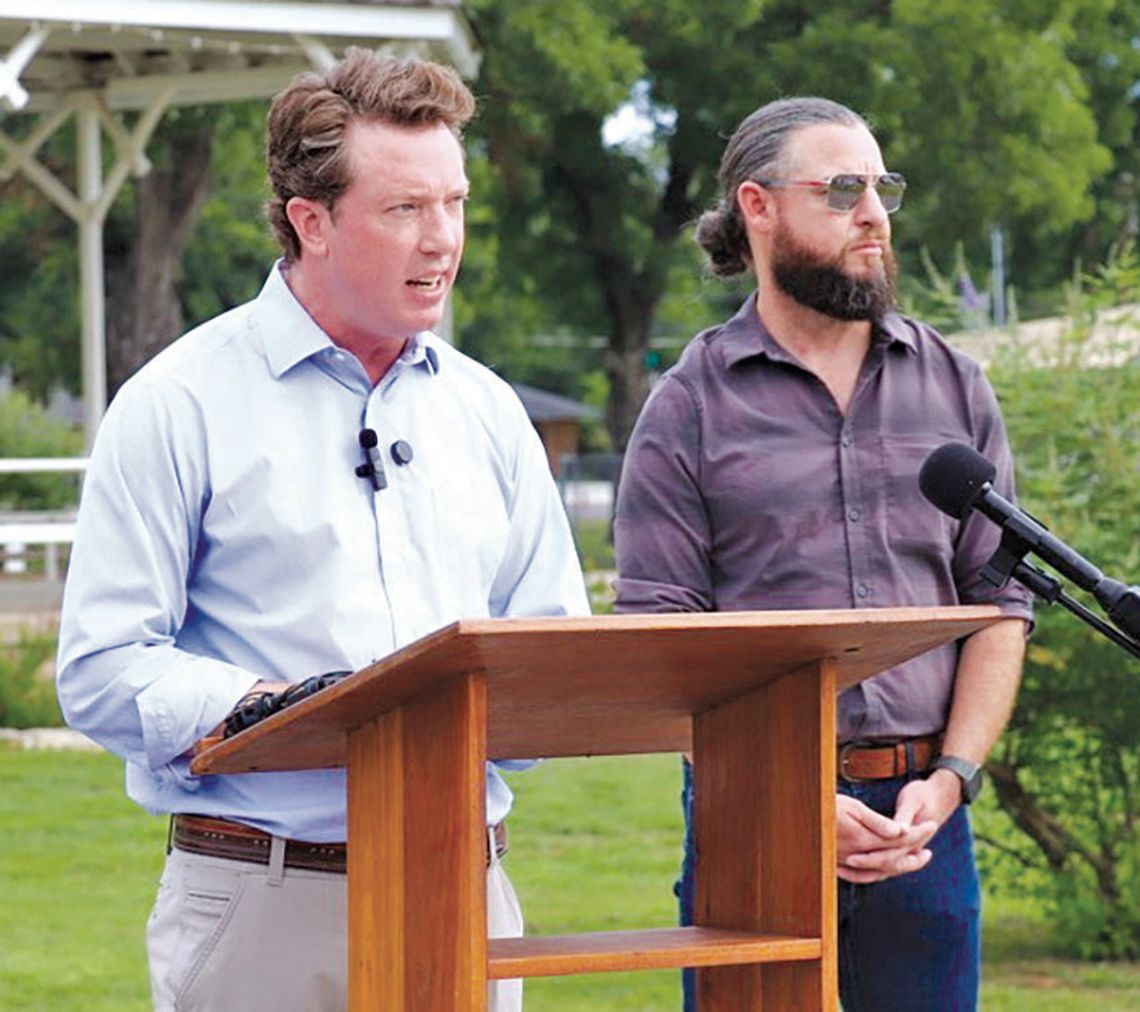When the State Legislature opens its 30-day Special Session Monday, flood response and emergency warning systems rank high on the legislative agenda.
The Guadalupe River soared out of its banks in the pre-dawn hours of July 4, rising 26 feet in just over an hour. The death toll from the raging torrent has hit 144 and continues to climb, with nearly 100 people are listed as still missing.
At a press conference Friday in Comfort Community Park, Ben Eldridge, executive director of the Heart of Texas Conservancy, said the best approach to saving lives is to leave floodplains undeveloped and enforce land and water policies already on the books.
“We need to stop building in the 100-year-floodplain going forward, with recovery efforts and rebuilding efforts imminent,” Eldridge said. “We need to not put people back in harm’s way.”
Representatives from other natural resource organizations joined Eldridge in calling for the need for floodplain and stormwater management and adherence to existing rules governing land use along rivers in the area, known as “flash flood alley.” Natural resource organizations statewide, he said, “are not content to sit by and allow a tragedy of this proportion to happen again.”
The best solution, “the most assured solution,” he said, “is to keep people out of harm’s way and not build in the floodplain.”
Joining Eldridge was Rachel Hanes, policy manager for the Greater Edwards Aquifer Alliance (GEAA), and Kel Hoffman, director of land conservation for the Cibolo Center for Conservation.
“ Hanes’ organization has long advocated for responsible flood solutions for many years “and will continue to do so in an effort to ensure that Texans do not have to endure a similar disaster,” she said. “Texans deserve better.”
The GEAA, Hanes said, applauds the Legislature for taking up flood protection and the need for warning systems in the special session. “But we need to prevent the worst of the impact from occurring in the first place and prepare communities for when they do happen,” she said.
Floods will continue to happen, she said, “with the likelihood of floods of this scale happening again.”
“We hope that lawmakers will join us in advocating for reform that allows counties greater land use authority over development in flood plains ... to protect their residents,” she said.
Hoffman said the time is now to launch action and take steps to lessen the severity of such intense flooding.
“This will happen again, this is ‘flash flood alley.’ This was the seventh occurrence of a fatal flood in the past 100 years,” Hoffman said. “It’s not a matter of if, but simply when, and we need to be able to protect the most vulnerable people in our communities.”
Eldridge said emergency response systems are important and needed, but they are not the holistic solution. The coalition, according to a press release, is calling for:
• Ensuring that floodplains are left undeveloped and appropriately buffered.
• Enforcement of land and water policies that protect floodplains and buffer zones.
• Limiting or eliminating variances that allow development in flood-prone areas.
• Investment in retrofitting infrastructure to accommodate natural water movement.
• Comprehensive watershed- wide planning, adopted and upheld at every level of government.
“You shouldn’t be putting people in the path of a flash flood. That goes without saying,” Eldridge said. “Unfortunately, it needs to be said, and we’re saying it, and other organizations will be saying it. We’re all going to be showing up at the Legislature to remind them that they need to do what they can to prevent future deaths.”
Hanes and Eldridge both said they realize that property owners — with Texas being a property rights ownership state — have owned riverfront property for generations and enjoy the amenities that come with living along the beautiful stretch of river.
“There may need to be incentives in place that allow the state, or enable the state or local governments, to purchase the development rights in floodplain areas,” Eldridge said, “which would still allow people to own that property privately but would prevent them from building there in the future. It could be an incentive for not doing so.”








Comment
Comments